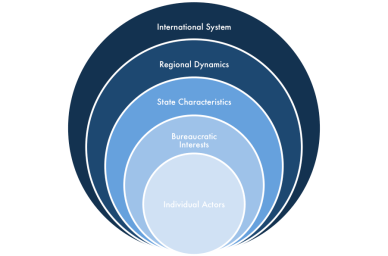Every junior year political science major has probably heard the classic “levels of analysis” lecture in their international relations courses. I’ve probably heard it six or seven times as a recent graduate. But only after a few weeks of post-grad retrospect have I realized the applicability of this political science tool to the emerging world of e-commerce and “social business” systems.
The “levels” framework was designed to guide the research of political phenomena into digestible, organized sectors of study: individual political actors, institutions within a given nation, a nation’s general dynamics, regional environments, and most generally, the international system at large.
The intent of the structure was to create spaces where researchers, regardless of theoretical perspective, could explore ideas on the same wavelength and avoid asynchronous debate. Compiling research within and across these levels allows for scalability in meta-data research.
Applying this framework to digital and social business could help conceptualize the increasingly systems-based study of economic behavior in dynamic environments like e-commerce. The application of “levels of analysis” to the world of digitalized social business might look something like this:
The approach allows us to map studies and insights within the broader system. Mapping each analysis in respect to its place in the “big picture” allows us to understand the insight and its relevance to the organizational environment.



You must be logged in to post a comment.